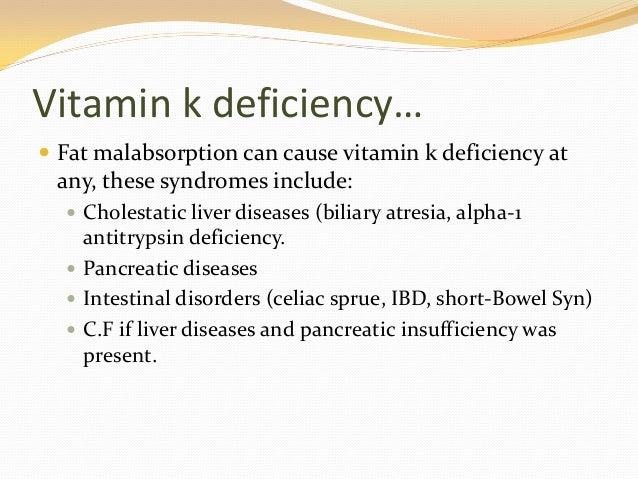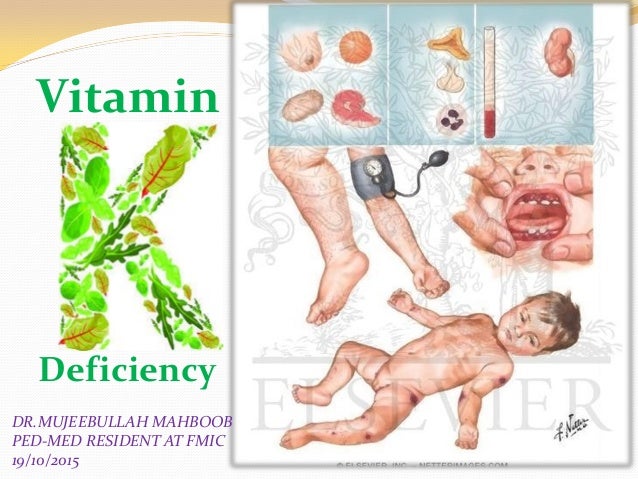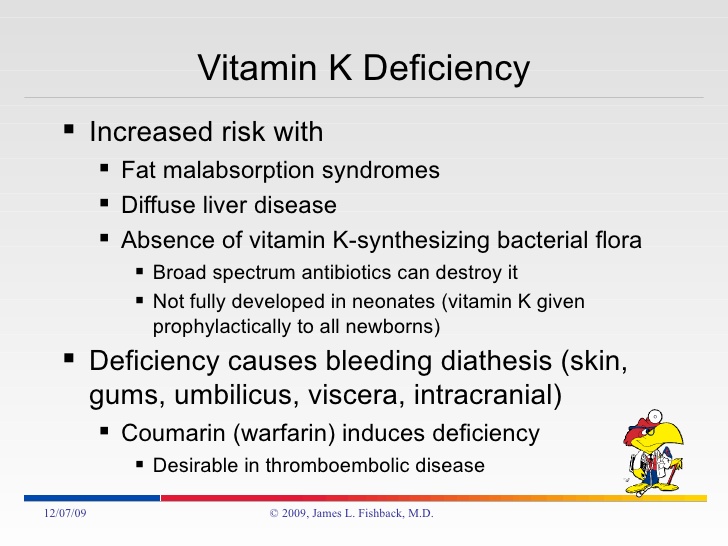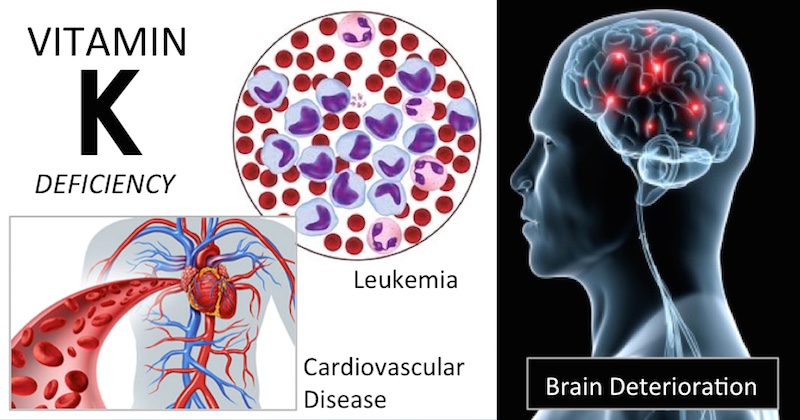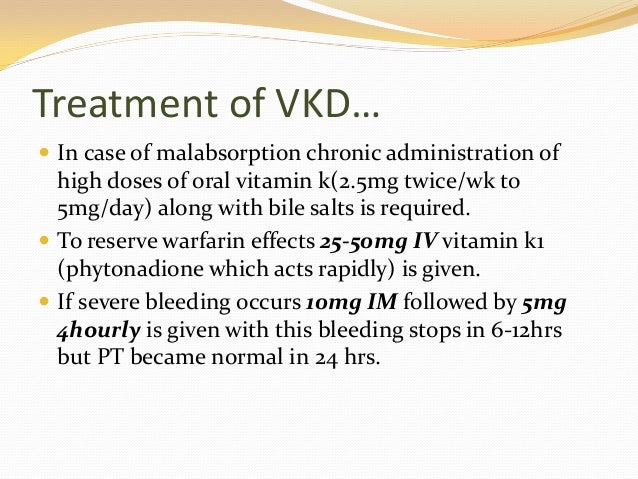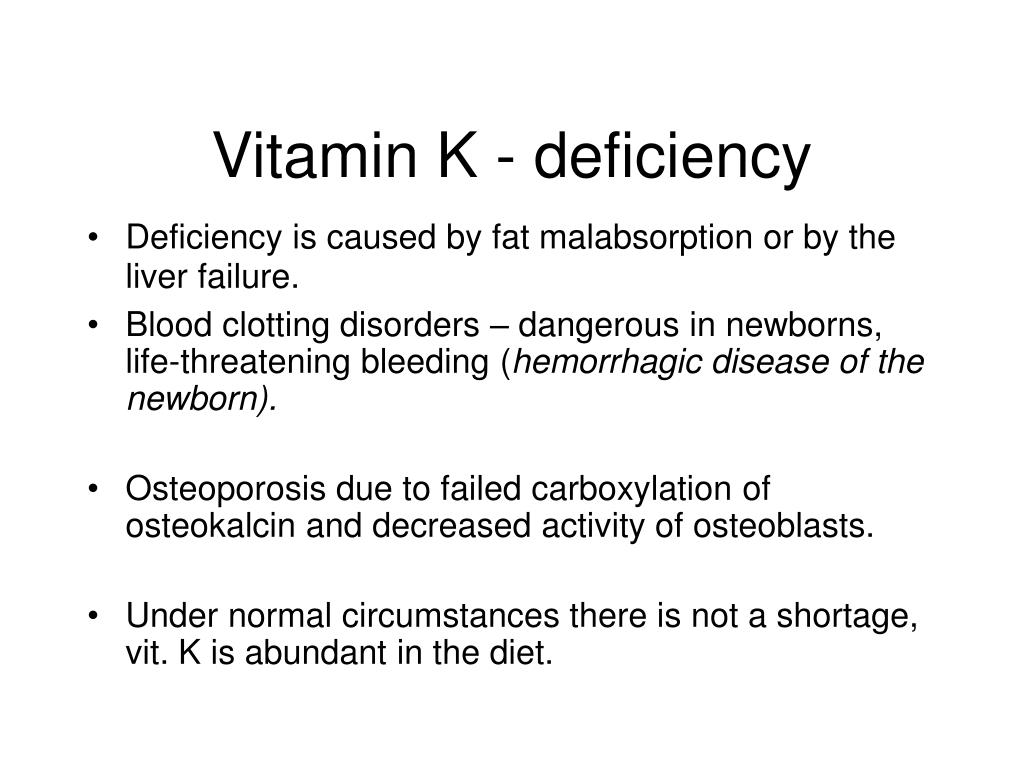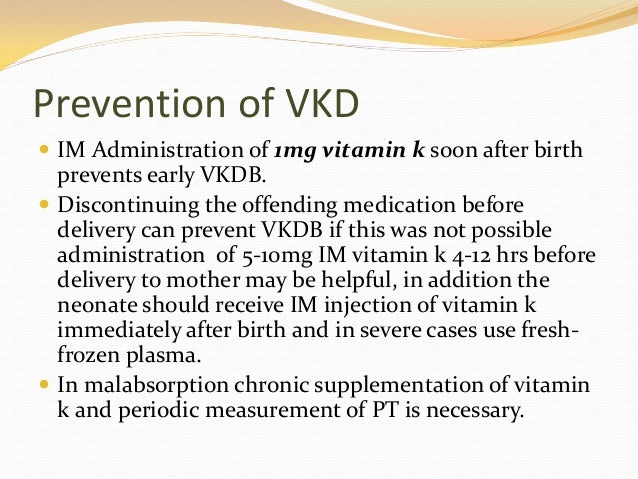Vitamins K Deficiency
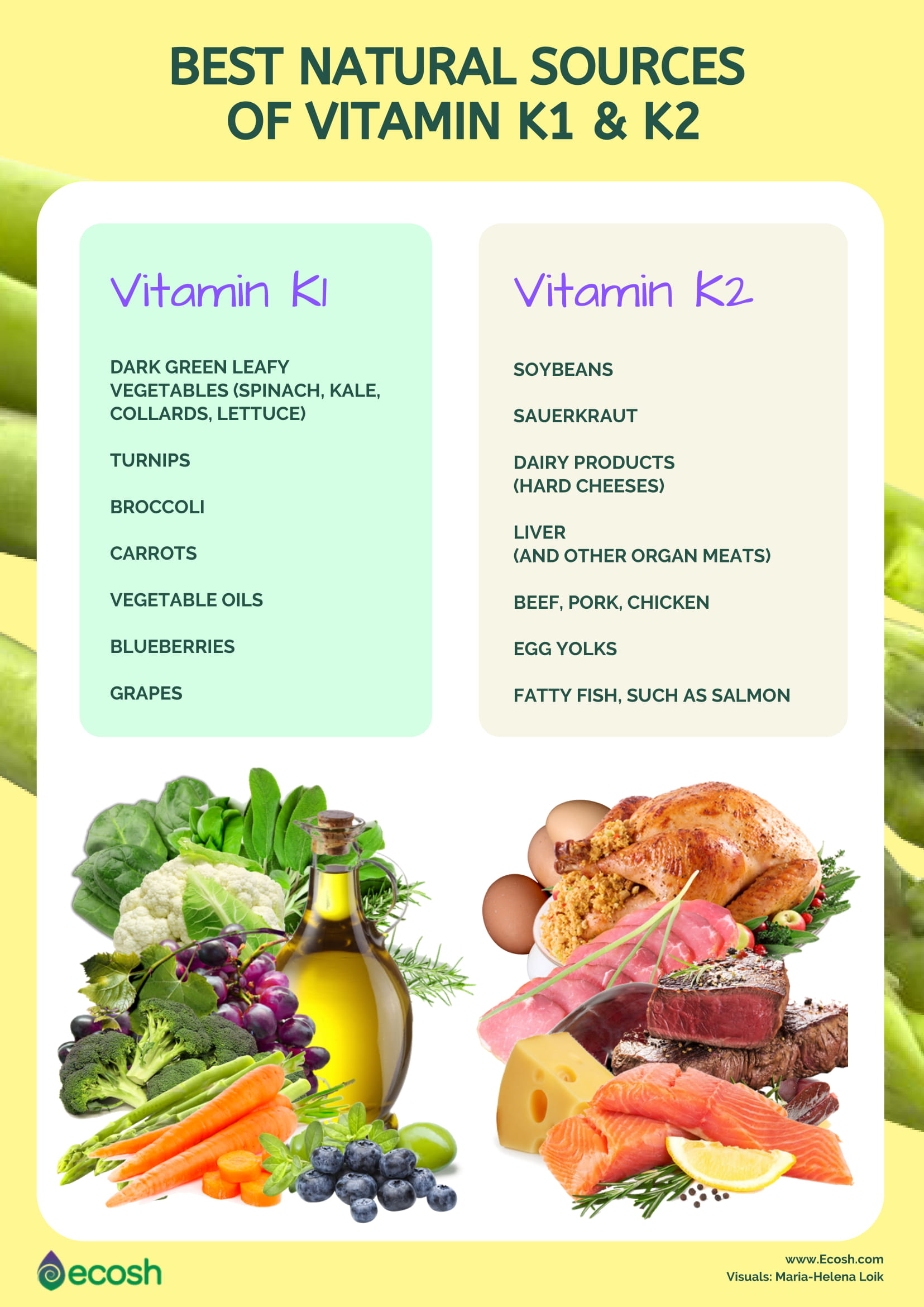
Taking the medication orally is common.
Vitamins k deficiency. Insufficient dietary vitamin k 1 or vitamin k 2 or both. If you require treatment for a vitamin k deficiency you may be prescribed high doses of pharmaceutical vitamin k1. Anticoagulants are given to people with conditions that increase the risk of blood clots. Vitamin k deficiency is rare in adults because many of the foods we eat contain adequate amounts of k1 and because the body makes k2 on its own.
Vitamin k1 and vitamin k2. These medications can be injected into the skin or administered orally to help quickly boost levels of vitamin k in the body. In almost all cases vitamin k deficiency is treatable. As long as the excessive bleeding hasn t spread to the brain treatment is relatively harmless.
While making dietary changes can generally help protect against vitamin k deficiency in adults long term. The main symptom of a vitamin k deficiency is excessive bleeding caused by an inability to form blood clots. Bruising petechiae hematomas oozing of blood at surgical or puncture sites stomach pains cartilage calcification and severe malformation of developing bone or deposition of insoluble calcium salts in the walls of arteries. What is a vitamin k deficiency.
Vitamin k deficiency in adults is rare but does occur in infants. If people have vitamin k deficiency taking warfarin or related anticoagulants interfere with the synthesis of clotting factors which help blood clot and can make bleeding more likely or make it worse. There are two primary types of vitamin k. When it comes to nutrients vitamin k isn t one we hear a lot about but it s an important one.
Plus the body is good at recycling its existing.

